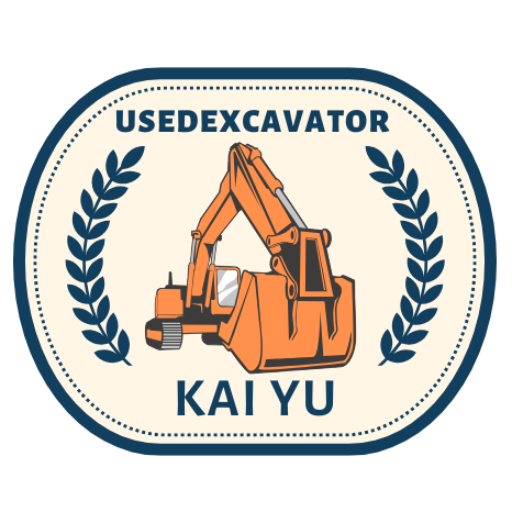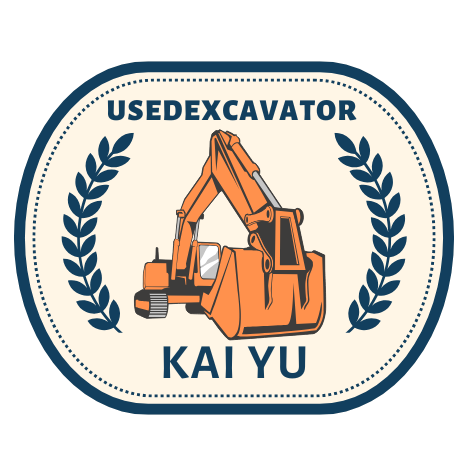When it comes to construction, excavation, and landscaping projects, selecting the right equipment is crucial for efficiency and success. Among the many types of machinery available, the used backhoe excavator stands out for its versatility, cost-effectiveness, and ability to perform a wide range of tasks. Whether you’re digging trenches, lifting heavy loads, or grading the ground, a backhoe can do it all. However, choosing the right used backhoe excavator for sale requires careful consideration of several factors to ensure that the machine suits your project requirements and budget. This guide will help you navigate the process of selecting the ideal backhoe excavator for your construction or landscaping needs.
1. Define Your Project’s Requirements
The first step in choosing the right used backhoe excavator is to clearly define the scope of your project. Consider the types of tasks you will be performing and the conditions of the site where the backhoe will be working. Are you primarily focusing on digging trenches for utilities or preparing foundations? Will you need to transport materials such as gravel, soil, or debris? Will you be working on rough terrain or confined spaces?
Understanding your project’s specific needs will help you determine the type, size, and configuration of the backhoe that is best suited for the job. For example, a small backhoe with a bucket capacity of 0.5 to 1 cubic yard may be perfect for residential construction or landscaping, whereas a larger model with a greater digging depth and heavier lifting capacity is more suited for commercial or industrial projects.
2. Assess the Size and Power Requirements
Backhoe excavators come in a variety of sizes, ranging from compact models to large, heavy-duty machines. The size of the backhoe you choose should be based on your project’s scale and the space available on the job site. A smaller, compact backhoe is ideal for tight spaces, such as urban construction projects, where maneuverability is key. On the other hand, a larger model would be more appropriate for large-scale excavation tasks where power and reach are more critical.
Additionally, the machine’s engine power and lifting capacity must meet the demands of the tasks you plan to perform. A more powerful backhoe will be able to handle heavier materials and more demanding projects. If your project involves frequent digging or material handling, you’ll need to ensure the backhoe has sufficient hydraulic power and a strong digging arm to complete these tasks effectively.
3. Evaluate the Condition of the Equipment
When purchasing a used backhoe excavator for sale, it’s essential to evaluate the condition of the machine thoroughly. The longevity and performance of a used backhoe will depend largely on how well it has been maintained. Key areas to inspect include:
- Engine Condition: Check for signs of engine wear, oil leaks, and unusual noises. A well-maintained engine is the heart of any backhoe excavator and should be free from any major issues.
- Hydraulic System: Since backhoes rely heavily on hydraulic systems to operate, inspecting the hydraulic hoses, pumps, and cylinders for leaks or damage is critical. A malfunctioning hydraulic system can lead to costly repairs.
- Undercarriage and Tires: If you’re considering a wheeled backhoe, check the condition of the tires. For tracked models, inspect the tracks for signs of wear. Worn-out tires or tracks can significantly affect the backhoe’s mobility and performance on rough terrain.
- Structural Integrity: Look for any signs of cracks, rust, or damage to the frame and boom. These structural components must be in good condition to ensure safe and efficient operation.
If you are unsure about the mechanical condition of the machine, it’s wise to hire an expert mechanic or technician to conduct a thorough inspection before purchasing.
4. Consider the Age and Hours of Use
The age of a used backhoe excavator and the number of hours it has been used can significantly affect its performance and value. Typically, backhoe excavators last for about 8,000 to 10,000 hours before major repairs are needed, although this varies depending on the brand, model, and maintenance history.
When evaluating a used backhoe, check the number of operating hours indicated on the machine’s hour meter. Machines with lower hours are often more desirable as they may have more life left in them. However, an older model with low hours might have suffered from infrequent use or neglect, so it’s essential to balance the machine’s age with its overall condition and maintenance history.
5. Review Maintenance Records and Service History
A well-maintained used backhoe excavator is likely to offer better performance and fewer problems over time. Ask the seller for the machine’s maintenance records and service history to get a sense of how well it has been taken care of. Consistent servicing, such as regular oil changes, hydraulic fluid replacements, and filter changes, can significantly extend the life of the machine.
Look for records that show any major repairs or upgrades that may have been performed. For example, if the backhoe has had a recent engine overhaul or hydraulic system replacement, this could indicate that the machine has been well cared for and is likely to perform better in the long term.
6. Check for Spare Parts Availability
Before committing to a used backhoe excavator, it’s important to ensure that spare parts for the specific model are readily available. Some older models or lesser-known brands may have difficulty sourcing parts, which can lead to expensive and prolonged downtimes when repairs are needed.
Research the availability of parts for the make and model you are considering. Popular brands like Caterpillar, John Deere, and Case tend to have widespread parts availability, which can make repairs more convenient and cost-effective.
7. Understand the Financial Aspects
While purchasing a used backhoe excavator can save you money upfront, it’s important to understand the long-term financial implications. Make sure to account for any immediate maintenance or repair costs, as well as the ongoing costs of operating the machine, such as fuel, insurance, and parts replacements.
It’s also worth considering the potential resale value of the backhoe. A well-maintained machine from a reputable brand may retain its value better over time, which can be a factor in your decision-making process.
8. Work with a Reputable Dealer
To ensure you are purchasing a used backhoe excavator that meets your needs and expectations, it’s crucial to work with a reputable dealer or seller. Established dealers who specialize in engineering excavation machinery are more likely to offer high-quality equipment, provide detailed maintenance records, and offer warranties or service agreements to give you peace of mind.
Look for customer reviews, ask for references, and choose a dealer who is transparent about the machine’s condition and history. A reputable seller will also be able to guide you in selecting the right machine based on your specific project needs.
Conclusion
Choosing the right used backhoe excavator for your project can significantly impact the success of your construction or landscaping operations. By evaluating the machine’s size, power, condition, and maintenance history, you can make an informed decision that balances performance and cost. Whether you are purchasing a used backhoe excavator for sale for a small residential job or a large commercial project, careful research and thoughtful consideration will help ensure that you choose the right equipment to meet your needs and maximize your investment.


